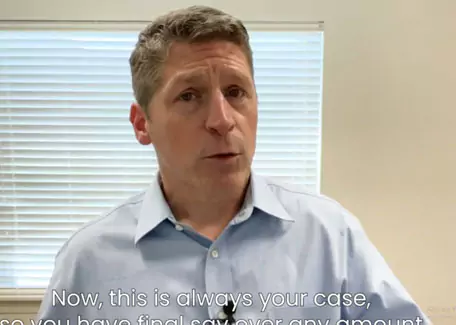Louisiana’s New Two-Year Prescriptive Period for Car Accident Claims: What It Means for You

If you’re involved in a car accident in Louisiana, starting July 1, 2024, there will be a significant change to the time limits within which you can file a lawsuit. Previously, Louisiana had a one-year prescriptive period (similar to what other states call a “statute of limitations”) for car accident claims, requiring plaintiffs to file within that period or lose their right to seek compensation. However, recent legislation has extended this time limit to two years, but only for accidents involving movable vehicles. Here’s an in-depth look at the change, its implications, and what you need to know.
1. Understanding Louisiana’s Prescriptive Period
In legal terms, a “prescriptive period” is the amount of time within which you must bring a lawsuit after an event, such as a car accident. After this period expires, the injured party generally loses the right to file a claim, even if they have a valid case. Louisiana’s prescriptive period for personal injury claims has traditionally been one of the shortest in the nation, set at one year. This change reflects a significant shift in policy and aligns Louisiana with more states that use a two-year period for personal injury and car accident claims.
2. What Is Changing and When?
The new law extends the prescriptive period from one year to two years, but only for specific car accident claims involving a “movable” object, which generally refers to vehicles and other movable objects on the road. The change applies solely to accidents occurring after July 1, 2024. For other types of injury claims unrelated to car accidents involving movables, the one-year prescriptive period remains unchanged. This means that while car accident claimants now have additional time to file lawsuits, people involved in other personal injury cases (like slip-and-fall incidents or medical malpractice cases) must still adhere to the shorter one-year period.
3. What Counts as a Movable?
Louisiana’s legal definition of “movable” includes anything that is not permanently affixed to the ground. For this new prescriptive period law, a “movable” primarily refers to vehicles like cars, trucks, motorcycles, and other types of motor vehicles involved in an accident. Therefore, if you are in an accident with another vehicle or even a mobile trailer, this two-year period applies.
However, if you are involved in a collision with something deemed “immovable” under Louisiana law—like a building or other permanent structure—this extension does not apply, and the one-year period would still be enforced. The nuance here is crucial for those interpreting which prescriptive period applies, especially as Louisiana’s legal definitions can differ from other states.
4. Why This Change Matters: Key Implications
Extended Time for Gathering Evidence
The two-year extension can provide much-needed relief for victims who may not immediately realize the extent of their injuries, a situation that’s common in car accidents. Often, injuries like whiplash or concussions may not show symptoms right away. An extended prescriptive period allows individuals to seek medical treatment, thoroughly assess the impact of their injuries, and make a more informed decision about filing a lawsuit without feeling rushed.
More Time for Negotiation and Settlement
For both plaintiffs and insurance companies, a longer prescriptive period allows additional time to negotiate settlements without rushing to court. Insurance companies might be more inclined to settle if they know the claimant has ample time to file a lawsuit if negotiations fall through. This could reduce the caseload on Louisiana’s courts by resolving more cases out of court.
Impact on Legal Strategy
From a legal standpoint, the two-year period changes how attorneys approach car accident claims. Lawyers now have more time to investigate, consult with experts, gather comprehensive evidence, and build a strong case. This additional time could be beneficial in cases where liability is disputed or when multiple parties are involved.
Potential Drawbacks of the Extension
While the extension provides obvious benefits, there are some potential drawbacks. For instance, insurance companies might delay settlement offers, knowing that plaintiffs have more time to file a claim. Additionally, witnesses to the accident might forget important details over a longer period, and physical evidence could deteriorate, impacting the accuracy of testimonies and the reliability of evidence.
5. Filing a Claim: What You Need to Know
Despite the change, it’s still recommended to act promptly after an accident. Here are steps to consider if you’re involved in an accident after July 1, 2024:
- Seek Immediate Medical Attention: Some injuries may not be apparent immediately but can have long-term effects. Getting a medical evaluation immediately helps document your injuries, which is crucial for your claim.
- Document Everything: Take photographs, gather witness contact information, and note all details surrounding the accident. These records will be vital as evidence should you decide to file a claim within the two-year period.
- Consult an Attorney Early: While the law allows two years, discussing your case with an attorney soon after the accident helps preserve evidence, build your case, and strategize for the best outcome.
- Be Aware of Insurance Deadlines: Even though the prescriptive period for lawsuits has been extended, insurance companies may still have shorter deadlines for reporting accidents or making claims under your policy. Check your policy and report the accident promptly.
6. How Does Louisiana’s New Law Compare to Other States?
With this new law, Louisiana joins several states that have adopted a two-year statute of limitations for car accident claims. However, Louisiana’s approach is unique in its specificity—applying the extension only to car accidents involving movables. Most states do not differentiate based on the type of accident; they have a standard period for all personal injury claims, which typically ranges from two to three years. Louisiana’s move to retain a one-year period for non-car accident claims reflects its historical preference for shorter prescriptive periods.
7. What Happens to Existing Claims?
The law only applies to accidents occurring on or after July 1, 2024. For those who have accidents before this date, the original one-year period still applies. This distinction is important for those currently in the process of filing a claim or awaiting settlements. Existing claims follow the previous one-year rule, and plaintiffs should act accordingly to ensure they do not miss the deadline.
8. Looking Ahead: The Future of Louisiana’s Personal Injury Laws
Louisiana’s decision to extend the prescriptive period for car accident claims reflects a potential shift in its approach to personal injury cases. The two-year prescriptive period is more in line with national trends, suggesting a recognition of the challenges that injured parties face within shorter timeframes. It will be interesting to observe whether this change marks a broader shift in Louisiana’s laws regarding personal injury and if similar changes could be introduced for other types of injury claims.
Conclusion
The new two-year prescriptive period for car accident claims involving movables is a substantial change in Louisiana’s legal landscape. By providing victims with additional time to file claims, Louisiana has taken a step toward ensuring that accident victims have ample opportunity to gather evidence, seek medical treatment, and pursue just compensation. However, the specific nature of this law means that not all personal injury claims will benefit from the extended period. For anyone involved in a car accident after July 1, 2024, understanding this new timeframe and acting promptly will be essential to preserving their legal rights.
As always, if you’re unsure about your case or the specifics of the new law, consulting with a Louisiana personal injury attorney can help you navigate the process and ensure you’re within the legal time limits. This change is an important one for Louisiana drivers, and being informed is the first step toward protecting your rights on the road.



